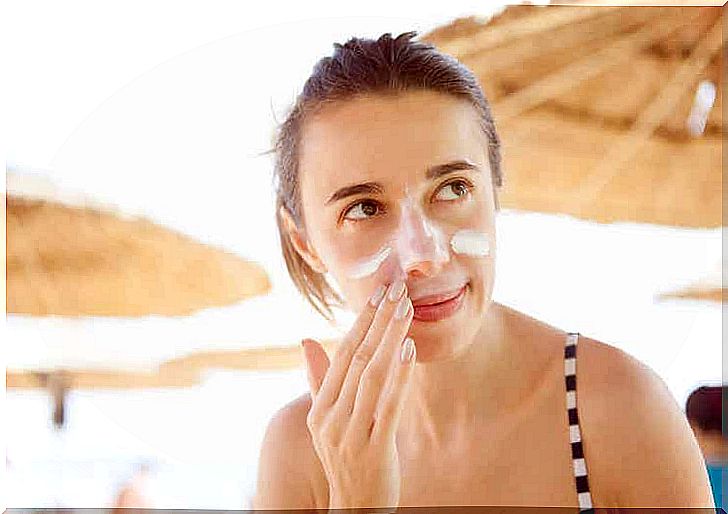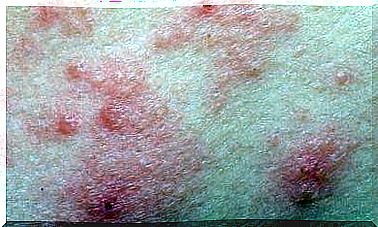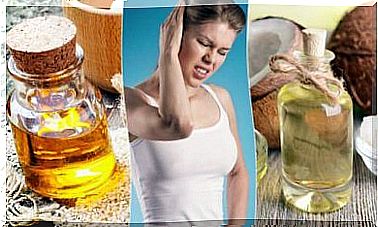Essential Bergamot Oil: Benefits And Possible Side Effects

Essential bergamot oil comes from the peel of a bergamot orange (Citrus bergamia). It is characterized by its special citrus aroma with floral scent and is often used in aromatherapy for medicinal purposes. Due to its concentration of nutrients and antioxidants , it is also considered an ally in skin care.
The fruit, as explained in an article published in Frontiers in Pharmacology, is a hybrid of bitter orange and lemon, whose extracts are used as a base for the manufacture of perfumes, cosmetics, food and sweets. However, you should use it with caution as it can cause side effects.
What do you need to know about it? Here are all the details!
Applications and properties of essential bergamot oil
Due to its citrus aroma and pharmacological composition, you can find essential bergamot oil in a wide range of personal care products. In particular, it can be present in perfumes, soaps, body creams and cosmetics. The food industry also uses it as a flavoring, and you can also find it in supplements.
According to information reported in the Flavor and Fragrance Journal , the oil contains bioactive molecules with potential health benefits. In particular, it has a volatile part – ranging from 93% to 96% of the total – and a non-volatile part – from 4% to 7% of the total.
Its main connections are the following:
- Lemon.
- Linalool.
- Linalyl acetate.
- Gamma terpines.
- Beta-pin.
- Pigments.
- Wax.
- Kumarin.
- Psoralen.
Although there are still limited clinical trials of this product, it has been shown to have antibacterial, antiseptic and anti-inflammatory properties. Similarly, studies have revealed antioxidant, analgesic and neuroprotective effects.
Benefits of essential bergamot oil
Natural medicine uses essential bergamot oil as an adjuvant to reduce symptoms of stress, anxiety and other mental problems. It is also said to have positive effects against high cholesterol, high blood pressure and pain. What does the evidence say?

Mood
Experts in aromatherapy suggest that inhaling essential oils can transmit signals to the limbic system, which is the area of the brain that regulates emotions. As a result, it causes physiological effects that are reflected in the reduction of stress, anxiety and heart rhythm changes.
A study published in Current Drug Targets found that aromatherapy with bergamot and other essential oils stimulates the release of serotonin and dopamine, better known as well-being hormones. Because of this , it favors relief of symptoms of depression and other mood disorders.
Cholesterol
Bergamot contains antioxidant compounds that are beneficial in regulating cholesterol levels. In research shared by Phytomedicine , extracts of the plant showed lipid-lowering effects attributed to its flavonoid content.
An animal experiment in the journal Nutrients confirms these properties and adds that the plant’s polyphenols exert an anti-inflammatory and antidiabetic effect. For now, more studies are needed to clarify the inherent mechanisms.
Food poisoning
One of the substances in essential bergamot oil, linalool, has been studied for its antibacterial effects. In particular, observations have shown that it can inhibit the growth of some types of bacteria that cause food poisoning, such as Staphylococcus aureus and Escherichia coli.
With regard to this, research in the Journal of Applied Microbiology determined that compounds in bergamot can help destroy several bacterial strains found in chicken skins and cabbage leaves. The microorganisms mentioned were as follows:
- Staphylococcus aureus
- Listeria monocytogenes
- Bacillus cereus
- Campylobacter jejuni
Studies are still ongoing, and researchers believe that in the future it may be the starting point for treatments for these infections. For now, it should not be the preferred treatment.
Pain and inflammation
Two compounds in essential bergamot oil, linalool and carvacrol, are associated with analgesic and anti-inflammatory effects.
In a review of studies published in the International Journal of Molecular Sciences , these compounds improved pain response and helped reduce inflammation. In addition, researchers observed an anticonvulsant effect.
Therapists using aromatherapy often combine this oil with a carrier oil (including coconut, almond or olive oil) to relieve symptoms of arthritis and musculoskeletal disorders. For this purpose it is often used for massage.
Cosmetics and skin health
The anti-inflammatory and bactericidal properties of the essential oils are useful in improving the health of the skin. Its use (in combination with a carrier oil) reduces the presence of acne, cysts and blackheads. Experts also believe that it promotes relief of eczema, ringworm and psoriasis.
Anecdotal evidence suggests that bergamot can soften hair and control frizzy hair. It is even said to help soothe an irritated scalp. For this purpose, you can add 6 to 8 drops of oil to your regular shampoo. You can also combine 2 or 3 drops with a carrier oil for massage.
Risks and possible side effects of essential bergamot oil
Pure essential oil from bergamot irritates the skin. Therefore, you should not apply it directly.
Instead, you can combine it with a carrier oil or other similar product. People with sensitive skin should do a little test before use. If after 24 hours there is no sign of a reaction, you can use it without any problems.
One of the substances in this product, bergapten, is phototoxic. This means that it increases the sensitivity to ultraviolet radiation, leading to problems such as photodermatitis. Therefore, after using the oil, rinse the skin thoroughly and apply plenty of sunscreen.
For safety reasons, children, pregnant women, people with hypoglycaemia or patients taking medicines that increase sensitivity to sunlight (eg Ciprofloxacin) should not use essential bergamot oil. If in doubt, consult your doctor or pharmacist.

How to use essential bergamot oil
To take advantage of the properties of essential bergamot oil, there are several options. The first is through an aroma diffuser, which is ideal for aromatherapy. You can replace the latter by diluting the oil in boiling water (from which you inhale the vapors).
It is also good to mix it with a carrier oil for massage in case of ailments. As the latter, it is possible to find it in supplements for oral intake. Remember that it is important to use only approved supplements and not consume the pure oil.
What to keep in mind regarding essential bergamot oil?
Bergamot essential oil is a product that concentrates pharmacological compounds with positive health effects. However, more evidence is needed to confirm the presumed benefits as well as the safe doses and possible side effects.
Therefore, you should not use it as the first treatment for diseases. Whenever possible you should consult a doctor before using it as a supplement or skin care product.









